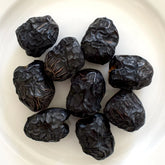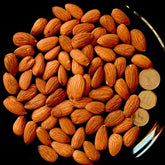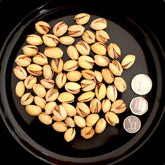how long will dried fruit last vacuum sealed : You Need To Know
Dried fruits are a delightful and nutritious snack loved by many. They provide a convenient way to enjoy the goodness of fruits with extended shelf life. Vacuum sealing is a popular preservation method that helps to lock in freshness and maintain the quality of dried fruits.
In this article, we will explore the factors how long will dried fruit last vacuum sealed and provide useful tips to ensure they last as long as possible.
The Power of Vacuum Sealing
Vacuum sealing is a preservation technique that removes air from the packaging, creating an airtight seal that prevents the growth of microorganisms and the oxidation process. By eliminating oxygen, moisture, and bacteria, vacuum-sealed dried fruits can maintain their taste, texture, and nutritional value for an extended period.
Factors Affecting Shelf Life
- Quality of Dried Fruits: The shelf life of vacuum-sealed dried fruits largely depends on their initial quality. Always use high-quality dried fruits free from spoilage or mold before vacuum sealing.
- Storage Temperature: Temperature plays a crucial role in preserving dried fruits. Store vacuum-sealed dried fruits in a cool, dry place away from direct sunlight to avoid heat-induced spoilage.
- Humidity Control: Excess humidity can lead to mold growth and spoilage. Keep your dried fruits in a low-humidity environment to maximize their shelf life.
- Vacuum Sealer Efficiency: The effectiveness of your vacuum sealer will impact the longevity of dried fruits. Invest in a reliable vacuum sealer that efficiently removes air and creates a strong seal.
- Packaging Material: Choose high-quality vacuum-seal bags or containers designed for food preservation to ensure optimal results.
Shelf Life Expectancy
The shelf life of vacuum-sealed dried fruits can vary depending on the type of fruit and the preservation conditions. On average, vacuum-sealed dried fruits can last:
- Berries (e.g., cranberries, blueberries, strawberries): 1 to 2 years
- Stone fruits (e.g., apricots, peaches, plums): 1 to 3 years
- Citrus fruits (e.g., oranges, lemons, grapefruits): 1 to 3 years
- Apples and pears: 2 to 4 years
- Tropical fruits (e.g., mangoes, pineapples, papayas): 1 to 2 years
Signs of Spoilage
Even when vacuum-sealed, dried fruits can eventually degrade. Watch out for the following signs of spoilage:
- Off odor: If the dry fruits emit a foul or rancid smell, they may have gone bad.
- Discoloration: Noticeable changes in color, such as dark spots or an overall darkening, can indicate spoilage.
- Mold: The presence of mold or excessive moisture is a clear sign that the dried fruits are no longer safe to consume.
- Off taste: If the dried fruits taste stale, bitter, or have an unusual flavor, it's best to discard them.
Tips for Prolonging Shelf Life
- Store in airtight containers: After opening the vacuum-sealed package, transfer the dried fruits into airtight containers to maintain freshness.
- Control temperature and humidity: Store the airtight containers in a cool, dry place with low humidity.
- Rotate stock: If you have multiple packs of dried fruits, consume the oldest ones first and regularly check for signs of spoilage.
Conclusion
Vacuum-sealed dried fruits offer a convenient and tasty way to enjoy the essence of fresh fruits over an extended period.
By following proper storage practices and understanding the factors that affect shelf life, how long will dried fruit last vacuum sealed you can maximize the longevity of your vacuum-sealed dried fruits and savor their natural goodness for years to come. Enjoy your delicious, nutritious, and long-lasting snacks!






